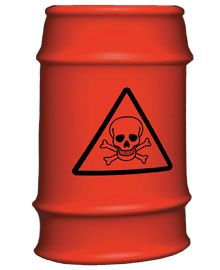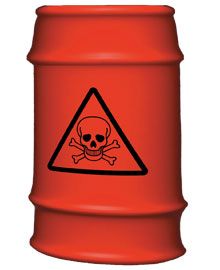6 symptoms of a toxic team
Shawn McVey, MA, MSW, offers six symptoms to diagnose a toxic team environment.
The very definition of a toxic practice is a situation overrun by emotions, says Shawn McVey, MA, MSW, a Firstline Editorial Advisory Board member and CEO of Pathway (Veterinary Management), an Austin based company that owns and manages over 40 hospitals. “Toxicity is an environment that is run by emotions and social bumper-cars, rather than by process and logical thinking,” he says.
But what does that mean? What exactly makes for the perfect storm of a toxic environment? McVey breaks it down in six simple signs.

1. Exposure to outbursts of emotion
This happens often when it is something toxic, according to McVey. Whether it's anger, sadness, jealousy, a wounded ego or anything in between, it's a place where feelings are displayed instead of discussed, McVey says.
2. Disdain for and lack of process around interpersonal communication
In other words, poor communication skills. “Quantifiably, people don't know how to talk about it. They don't have the vocabulary for it. They don't understand it intellectually, which is because they haven't ever tried," McVey says. "Conflicts and problems are not discussed; they're swept under the rug.”
3. Lack of systems
“Veterinary practices with an absence of systems will become little sociological petri dishes for exercises of power, mind play and anything else along those lines,” McVey explains. When there are no logical, healthy systems in place to keep a veterinary practice balanced, a team will almost certainly fall into toxicity.

4. Little to no empathy shown
According to McVey, this is in direct line with how people describe conflict in terms of another person's worth or value as opposed to their behavior. “There's not a lot of ‘I understand where you're coming from' and identifying the feelings while still focusing on the behavior,” McVey says.
Here's an example of what lack of empathy looks like: “We didn't have a disagreement about what time I need to come into work-you're just being a mean boss and make me come in early because you don't like me.”
5. Feelings are justifiable excuses
Behaving in a way that is oppositional to practice values, backed up by feelings and unguarded emotions. “If I have a feeling, whatever it is, that is the only justification I need to behave in a way that is inappropriate,” McVey says.
6. Hypocrisy, or the feeling that things will never change
“It's kind of like same stuff, different day, because we say one thing and do another," McVey says. "The values are written on the wall, but we don't follow them.”
Are you sensing toxicity?
Ready to help heal your toxic team environment? The first step sounds simple, but it's more complex than it seems: Paying attention and being in the moment is required for good medical care, McVey says.
“Paying attention to what's happening between people and reading between the lines will enable you to provide the social medicine as well as the physical medicine.”
Editors' note: Are you a member of a toxic team? Are you a toxic team member? How toxic is your practice? Do you have any toxic team stories, tips or advice? We want to hear from you! Tell us in the comments below or email us at firstline@advanstar.com